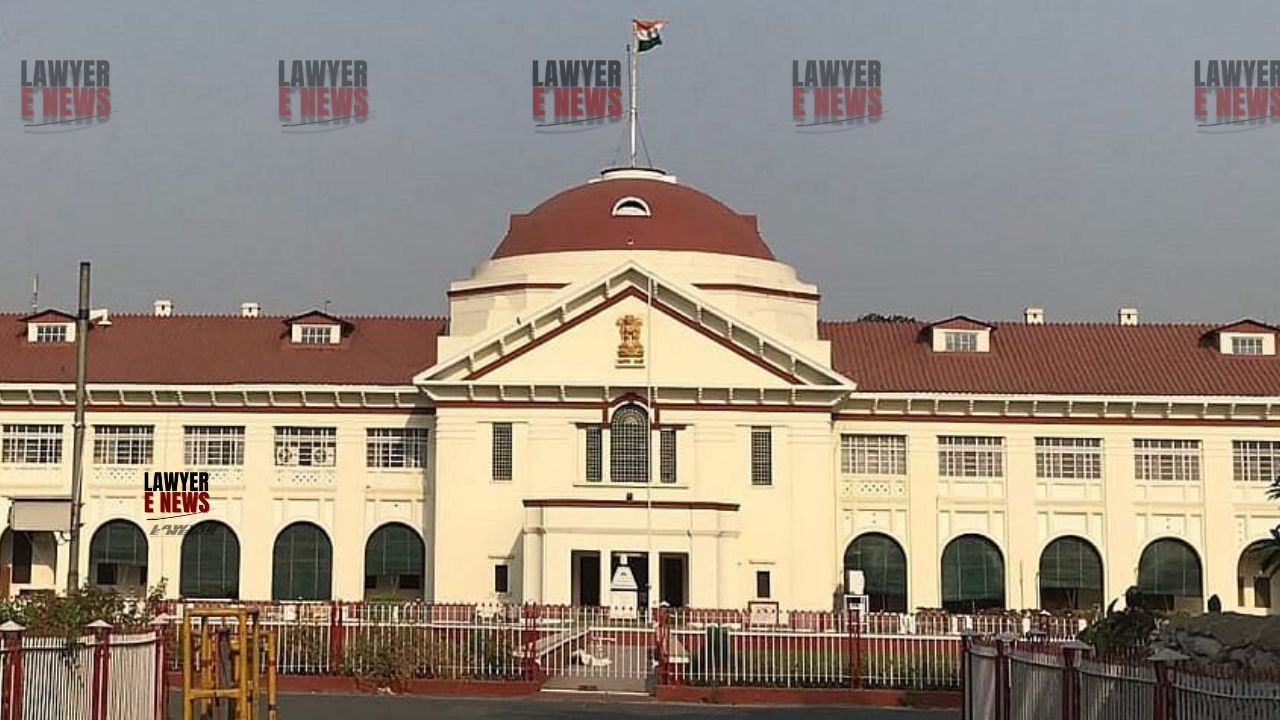-
by Admin
15 February 2026 5:35 AM



Patna High Court delivered a crucial judgment in the case of Biltu Ray @ Bilat Ray @ Bilat Prasad Yadav v. The State of Bihar & Ors. The appellant, Biltu Ray, challenged his disqualification from the post of Mukhiya on the grounds of allegedly acquiring Nepalese citizenship, thereby resulting in the cessation of his Indian citizenship under Section 9 of the Citizenship Act, 1955. The Court ruled that the State Election Commission did not have the authority to determine the cessation of citizenship, stating that such jurisdiction lies exclusively with the Central Government under the Citizenship Rules, 2009.
The appellant, Biltu Ray, a naturalized citizen of India, was disqualified from the post of Mukhiya of Gram Panchayat Bhaluaha, Sonebarsa Block of Sitamarhi District, on the grounds of allegedly acquiring citizenship of Nepal. The State Election Commission based its decision on the assertion that Ray's name was included in the electoral roll of Nepal, indicating he had voluntarily acquired Nepalese citizenship.
Ray argued that the Commission had no jurisdiction to adjudicate on such matters, as per the provisions of Section 9 of the Citizenship Act and the Citizenship Rules, 2009. He contended that the issue should have been referred to the Central Government, which is the competent authority to decide on the cessation of citizenship.
Jurisdiction of State Election Commission: A key legal issue was whether the State Election Commission had the authority to determine the cessation of Indian citizenship. The appellant argued that under Section 9 of the Citizenship Act, only the Central Government has the power to decide if a person has voluntarily acquired the citizenship of another country. He also pointed out that Schedule III of the Citizenship Rules, 2009, mandates that such matters be referred to the Central Government.
Voluntary Acquisition of Foreign Citizenship: The court also examined whether the appellant had voluntarily acquired Nepalese citizenship. The appellant claimed that he never applied for Nepalese citizenship and that his inclusion in the Nepal electoral roll was not a voluntary act but rather a result of a ground-level survey conducted by the Nepalese government. He argued that merely being listed in the electoral roll does not equate to the voluntary acquisition of citizenship.
Central Government’s Exclusive Jurisdiction: The Court referred to several landmark decisions to establish that only the Central Government has the authority to determine issues of citizenship cessation. It cited the Supreme Court ruling in Izhar Ahmad Khan and Others v. Union of India and Others (AIR 1962 SC 1052), which upheld the validity of Section 9 of the Citizenship Act and the requirement that questions regarding the voluntary acquisition of foreign citizenship must be determined by the Central Government. The court stated, "Rule 40 of the Citizenship Rules, 2009 provides that any question arising as to whether, when, or how any person has acquired the citizenship of another country... the Central Government has to determine the issues."
Election Commission's Lack of Jurisdiction: The Court observed that the State Election Commission had overstepped its jurisdiction by disqualifying the appellant based on citizenship issues. Referring to the Full Bench decision in Rajani Kumari v. State Election Commission (2019), the court noted that while the Election Commission can consider disqualification based on unimpeachable materials, it cannot decide on contentious issues such as the cessation of citizenship. It stated, "Whenever a disputed question of fact and a contentious issue is brought before the Commission as a ground and basis to render a candidate disqualified, the Commission would be required to relegate the parties to a competent court/tribunal or a fact-finding body competent to decide such contentious issues after taking evidences."
Voluntary Acquisition of Citizenship: The Court emphasized that the mere inclusion of an individual's name in the electoral roll of a foreign country does not necessarily imply voluntary acquisition of that country's citizenship. It highlighted that the appellant did not apply for Nepalese citizenship and that his inclusion in the Nepal electoral roll occurred during a governmental survey post-2006, not as a result of any voluntary action on his part.
Procedure for Determining Citizenship Cessation: According to the Citizenship Act and Rules, the procedure for determining whether an individual has lost Indian citizenship involves an inquiry by the Central Government. Rule 40 of the Citizenship Rules, 2009, outlines the process, and Schedule III provides a detailed procedure for conducting such an inquiry. The Court underscored that only after such a determination by the Central Government can a person's citizenship status be conclusively decided.
Referral to Central Government: Given these considerations, the Court directed that the matter should be referred to the Central Government to decide whether the appellant had voluntarily acquired Nepalese citizenship, thereby leading to the cessation of his Indian citizenship under Section 9(1) of the Citizenship Act, 1955.
The Patna High Court set aside the order of the State Election Commission and the judgment of the learned Single Judge, ruling that the matter of the appellant's citizenship status should be determined by the Central Government. The Court concluded that until a decision is made by the Central Government, the appellant is entitled to continue in the post of Mukhiya. The ruling affirms the principle that matters of citizenship cessation are within the exclusive domain of the Central Government, not the State Election Commission.
Date of Decision: September 12, 2024
Biltu Ray @ Bilat Ray @ Bilat Prasad Yadav v. The State of Bihar & Ors.
